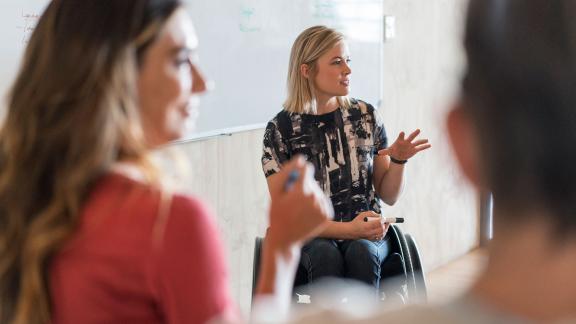Embedding the Workforce Disability Equality Standard

The NHS Workforce Disability Equality Standard (WDES) came into force on 1 April 2019 and is a set of specific measures (metrics) that enables NHS organisations to compare the experiences of disabled and non-disabled staff. This information is then used by organisations to develop a local action plan, and enable them to demonstrate progress against the indicators of disability equality.
The WDES is important because research shows that a motivated, included and valued workforce helps to deliver high quality patient care, increased patient satisfaction and improved patient safety. It supports positive change for existing employees, and enables a more inclusive environment for disabled people working in the NHS.
WDES data collection and reporting framework
The WDES reporting timeline runs from 1 May to 31 May for NHS trusts and foundation trusts. It required metrics and narrative data to be reported via the WDES data collection framework.
In addition, trusts are required to publish details on their website by 31 October this includes their WDES annual report which should contain their organisation’s data for each metric, their WDES action plan and details of progress.
Visit the NHS England to learn more about the WDES.



